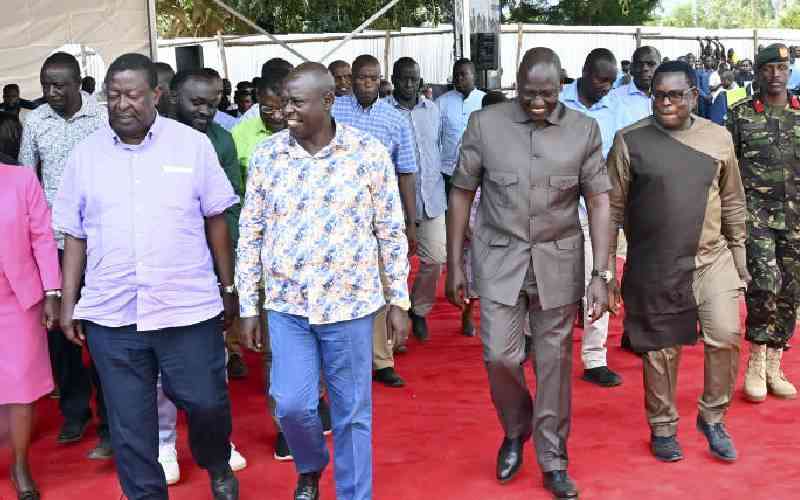×
The Standard e-Paper
Fearless, Trusted News

President William Ruto and his deputy Rigathi Gachagua campaigned on a horse carrying bags of hope promised to the hustler nation.
Day after day, the duo toured across the country with a pledge to uplift the lives of lowly Kenyans. Their campaign strategy was clear; blame every misfortune on President Uhuru Kenyatta and his handshake with opposition leader Raila Odinga.